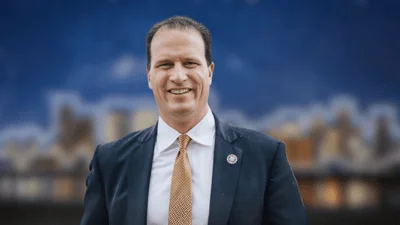FORT COLLINS, Colo., Feb. 26, 2019 - The Federal Laboratory Consortium (FLC) recently announced the winners of its annual technology transfer awards.
The U.S. Department of Agriculture’s (USDA) Animal and Plant Health Inspection Service (APHIS) is pleased that Dr. Larry Clark, the Director of the National Wildlife Research Center (NWRC) was selected for the 2019 FLC Laboratory Director of the Year Award for his outstanding contributions in support of technology transfer. The NWRC is the research unit of APHIS’ Wildlife Services program which provides federal leadership and expertise to help resolve conflicts between people and wildlife."We are honored that the Federal Laboratory Consortium is recognizing Dr. Clark and the National Wildlife Research Center for their efforts to put research into real-world use and move new technologies to the marketplace," said APHIS Administrator Kevin Shea. “With Dr. Clark’s leadership, the NWRC’s technology transfer efforts have successfully provided new tools and technologies to private businesses through Cooperative Research and Development Agreements (CRADA), as well as patenting and licensing opportunities. These tools help APHIS, state wildlife managers, farmers, and ranchers protect agricultural and natural resources from damaging wildlife and predators, as well as help producers to be more productive in their efforts to feed and clothe the world." NWRC employs about 30 Ph.D. research scientists, and collaborates on average with 140 unique entities each year. These collaborations have led to nearly 400 intellectual property agreements, including 27 CRADAs, since 2013. Examples of recently patented and licensed NWRC technologies include a wildlife contraceptive, bird repellents, traps for large reptiles, and an automated bait delivery system.Because wildlife damage management products often have very limited and specialized markets, few private companies are financially willing or able to handle the risks of new product development. NWRC plays a critical role in absorbing these risks by investing in innovative research, sometimes developing the products on its own, sometimes by partnering with private-sector entities. These investments support the creation or diversification of small businesses which, in turn, manufacture and provide products to the Wildlife Services program, state and federal wildlife managers, land owners, agricultural groups, conservation organizations, and others who need them.The FLC award recognizes both the excellence of Dr. Clark’s efforts and his organization’s technology transfer program. Dr. Clark will be presented with the award on April 24 at a reception during the annual FLC national meeting held at the Hyatt Regency Hotel in Orlando, Florida. The NWRC is one of more than 300 federal laboratories comprising the FLC.To learn more about the NWRC’s technology transfer efforts, please see The FLC is the nationwide network of federal laboratories that provides the forum to develop strategies and opportunities for linking laboratory mission technologies and expertise with the marketplace. In consonance with the Federal Technology Transfer Act of 1986 and related federal policy, the mission of the FLC is to promote and facilitate the rapid movement of federal laboratory research results and technologies into the mainstream of the U.S. economy. NWRC is the research unit of the USDA-APHIS’s Wildlife Service program. It applies scientific expertise to resolve human-wildlife conflicts while maintaining the quality of the environment shared with wildlife. NWRC develops methods and information to address human-wildlife conflicts related to agriculture; human health and safety; property damage; invasive species and threatened and endangered species. To learn more about NWRC, visit their website at https://www.aphis.usda.gov/aphis/ourfocus/wildlifedamage/programs/nwrc.
Source: U.S. Department of Agriculture Animal and Plant Health Inspection Service








